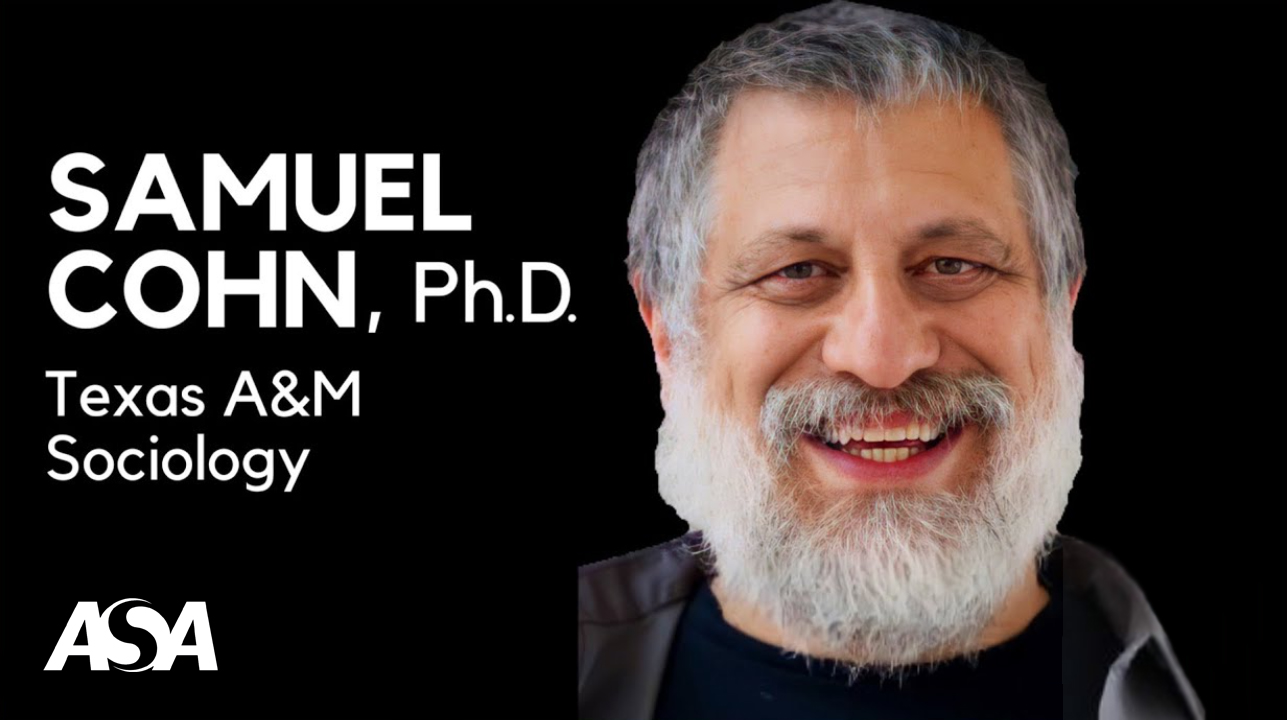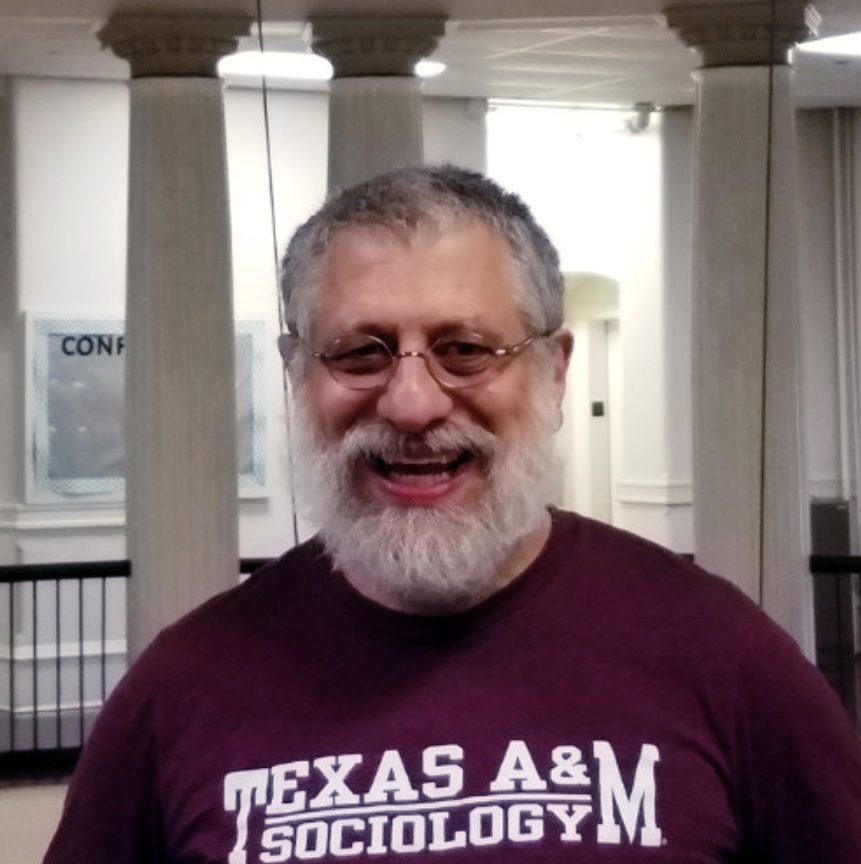
Dr. Samuel Cohn has been a faculty member in the Department of Sociology at Texas A&M University for 34 years. In that span of time, Cohn has done a great deal of work, including writing books and articles, receiving grants, winning book awards and starting an entire branch of a professional association.
Of his many accomplishments, Cohn’s latest may be his most defining: earning the American Sociological Association (ASA) Section on the Sociology of Development’s 2023 Lifetime Achievement Award for his outstanding contributions to the sociological practice. Cohn was presented with the award in August at the ASA’s 2023 Annual Meeting.
“This is not a cherry on top — it is the bowl that holds the ice cream in the first place,” Cohn said. “In economics, there’d be a Nobel Prize. This is a much smaller competition pool, but it’s the highest award you can get. No more than three Development Lifetime Achievement Awards have ever been given in the history of the Association. So, I feel pretty good about it.”
To put Cohn’s influence into perspective, the ASA is more than 118 years old and boasts around 10,000 members dedicated to “serve sociologists in their work, advance sociology as a science and profession, and promote the contributions and use of sociology to society.” The Sociology of Development section is a concentrated group of sociologists who study the causes and consequences of economic change in societies, encompassing topics such as global poverty, the inter-relation between economic development and personal life, models of migration, historical transformations of gender roles and ideology, and more.
In fact, Cohn founded the Sociology of Development Section within the ASA and served as its first president. The Section grew to now have its own leadership, bylaws, council, editors, publication and awards. In 2014, the Section Council not only awarded Cohn its inaugural Distinguished Service to Development Sociology, but titled it after him as the Samuel Cohn Award, essentially making his name synonymous with excellence in the field.
Much of what happens in the world happens right here in Texas. I have a chance to teach people who I could never reach any other way. I teach about the basic causes of crime and poverty. The generation of people who are going to fix those problems are in my classroom today. There is no more important job on the planet.
Cohn says he dedicated his career to the Sociology of Development field because he believes it addresses the roots of many societal issues.
“Development issues occur at all social classes and all levels of wealth, but it is fundamental to the happiness of people,” Cohn explained. “One of the most robust findings that comes out of the study of happiness is that money buys a certain level, though not completely, of happiness. The world should be thinking about what it’s going to take to move the largest number of people from living on one dollar a day to 12 dollars a day.
“Misery is shared. It’s not us versus them. It’s everybody or it’s nobody. Seriously giving thought to what causes development and growth in the full sense will allow us to look at all the causes of happiness and how they’re affected by all aspects of society. Not just the economic variables, but the political, social, cultural, family variables… it’s all one package. You’ve got to see the totality.”

Cohn has received five National Science Foundation grants and written five books, his latest titled “All Societies Die: How to Keep Hope Alive” published in 2021 by Cornell University Press that assesses the growth and decline of past and current societies. He helped in writing the first “Handbook of Development Sociology” in 2016. He organized several conferences in Development Sociology, founding the Development Sociology Section of the Canadian Sociological Association and is serving on the board of the Development Sociology section of the International Sociological Association. His writing has been featured in various publications, books and journals, most recently in “The Hill” and “The Conversation.”
Cohn currently is working on a project he titled “Violent Frontiers” about capitalism as a source of growth needing resources that tend to come from frontiers, the resulting violence, and when regions stop being violent. By looking at the history of frontier expansion, Cohn hopes to explore the source of global growth from local resources, particularly through periods such as 19th century Texas, the industrialization of Southeast Asia, the Belgian Congo and more. With such a distinguished career handling many heavy topics, Cohn continues his practice while teaching at Texas A&M for a not-so-simple reason.
“These students will go on to be the Joint Chief of Staff in the armed services of our country,” Cohn said. “They’ll be the governors of our state. They will lead the highest level of corporations. And, as such, they will make the most important decisions that America or the world will need to have made.
“Much of what happens in the world happens right here in Texas. I have a chance to teach people who I could never reach any other way. I teach about the basic causes of crime and poverty. The generation of people who are going to fix those problems are in my classroom today. There is no more important job on the planet.”
Learn more about Cohn and his career at https://www.samuelcohn.net.
